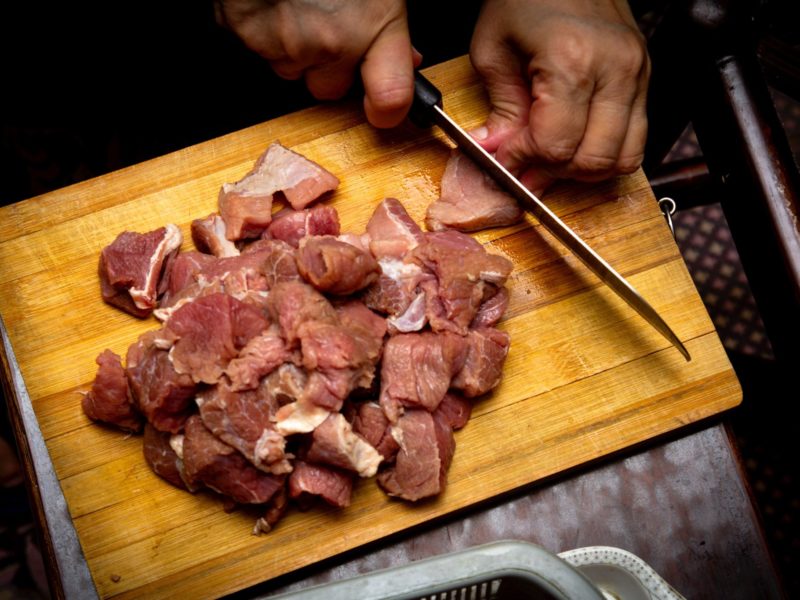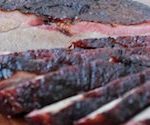The idea of going to college and the accompanying freedom is often so exciting that we forget that we are taking on new responsibilities. For many, this independence means they now have to fend for themselves, stay financially responsible, and learn to prepare meals.
You can rely on a write essay for me service to handle your assignments, but you can’t always count on the school cafeteria when hunger comes knocking at odd hours.

This article will unravel the cooking process and give you the best recommendations to properly prepare beef on a student budget.
1. Pay Attention to Storage
Properly preserving your beef is essential because it ensures the meat is fresh when you want to prepare it. You should learn to store beef because buying food in bulk is cheaper, but you may waste the excess without proper preservation methods.
If you have a refrigerator, you can preserve your beef by wrapping it in foil and keeping it in the freezer. Alternatively, put it in a Ziploc bag and suck all the air out of the bag, then store it in your freezer.
If you don’t have a refrigerator, get a good pressure can and put the meat inside. Pressure canning can help you store your beef for up to two years.
2. Use Quality Ingredients to Cook Your Beef
Life as a student may be financially tasking, but you must resist the urge to cut corners or test your saving skills on your health and feeding. Avoid using low-quality ingredients to prepare your beef or it will taste bland, or worse, you can end up with food poisoning.
When cooking beef, buy high-quality ingredients that will improve the taste.
3. Don’t Be Scared of Touching the Beef
Touching raw beef can be disgusting; the smell is enough to make anybody sick. However, if you want to get the most out of your beef, you have to overcome the fear of coming in contact with meat.
If you can’t touch your beef, you are less likely to wash it properly or spice it up, causing the inner parts of the meat to be tasteless. So to avoid ending up with beef that looks good but tastes like raw meat, you should spend time massaging the spices in.
4. Allow Grilled Meat to Sit for a Few Minutes Before Serving
After grilling beef, all the flavors and juices typically aggregate in the middle. If you or your friends eat it immediately after taking it off the grill, you will notice an inconsistent taste. And that’s if you don’t burn your tongue.
So when next you grill beef, keep a chop board or plate nearby to help you remember to allow your meat to sit for a while before eating. You can play a board game in the meantime or chat with your friends. By being patient, the flavor will spread and make the beef tastier.
5. Don’t Remove the Fat from Beef Cuts
Many people advise removing the fat from beef because it isn’t healthy. However, the fat in your meat has benefits that you could be missing out on by discarding it.
When you boil your beef with the fat, it helps absorb and lock in the flavors, making for tastier meat. Additionally, fat makes your beef more delicious and improves its texture on your tongue.
Fatty foods also give you energy, make you relaxed, and help you feel full faster, reducing the need to binge eat.
6. Handle Ground Beef with Care

Secondly, always buy ground meat before or on the “sell by” date and cook it two days after purchase, at most.
If you love ground beef dishes, then you should buy a meat thermometer — it will help you check if your food is cooked correctly or not.
7. Soak Your Beef in Spices
Before cooking beef, add water and leave it to sit after spicing. Marinating or soaking your beef in natural or acidic spices like vinegar will make it tender and easier to chew.
This approach will also make the seasoning penetrate the meat before boiling. And by the time you start cooking the beef, the spices would have already seeped through, improving its taste.
Conclusion
Cooking as a student comes with challenges as you have to take responsibility for how your food tastes, especially if you also have to cook for friends. Besides, there are nuances to cooking beef that you must learn if you intend to prepare tastier dishes.
You must learn proper preservation techniques if you don’t want your meat to go bad before you even have a chance to enjoy it. And when you start cooking, these seven helpful tips on preparing beef will help you improve the quality of your food, eat better, and stay healthy.
Interested in eating more healthy for life?
Listen to our friends over at Wellness Force Radio to learn about the “5 Must Have Nutrition Fundamentals”








 How to Learn to Cook Beef: 5 Best Recommendations from Famous Chefs
How to Learn to Cook Beef: 5 Best Recommendations from Famous Chefs